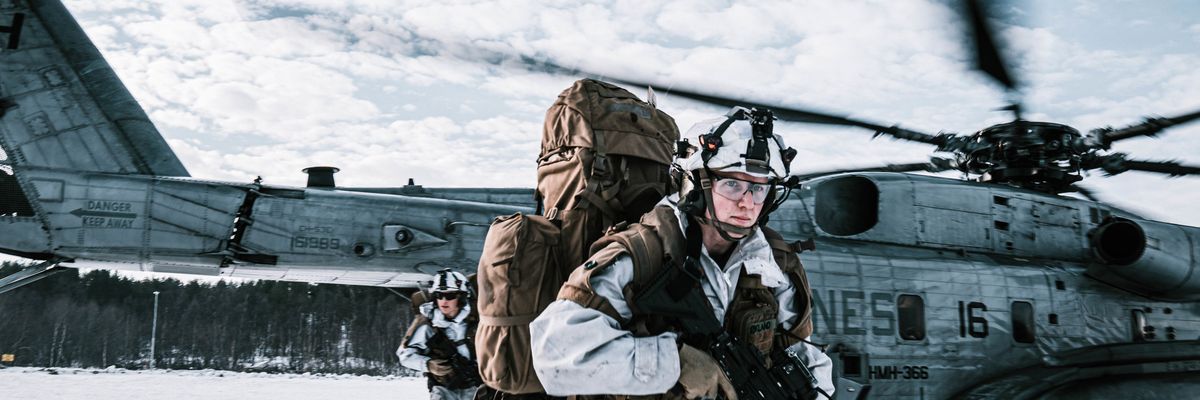Russia has formally withdrawn from the Barents Euro-Arctic Council (BEAC), the latest blow to prospects for continued Arctic cooperation as relations between Moscow and Western capitals plummet to new lows 18 months into Russia’s invasion of Ukraine.
“Under the current conditions, we are forced to announce the withdrawal of the Russian Federation from Barents Euro-Arctic Cooperation (BEAC),” the Russian Foreign Ministry said in a statement.
“Through the fault of the Western members (Denmark, Iceland, Norway, Finland, Sweden, the EU), the Council’s activities have been effectively paralysed since March 2022. The Finnish presidency failed to confirm the transfer of the BEAC presidency to Russia, scheduled for October 2023, in violation of the principle of rotation thus disrupting the necessary preparations,” the statement added.
Russia was informally dismissed from the BEAC, which has done work in areas including environmental protection, rights of indigenous peoples, conservation, and the sustainable management of forest resources, in the opening stages of its 2022 invasion of Ukraine.
A similar situation is playing out in the Arctic Council, whose seven other members — Canada, the United States, and the five Nordic states — announced in March 2022 that they will not convene under Russian chairmanship or work on projects involving Russia, the region’s largest geographical stakeholder.
The BEAC and Arctic Council, established in 1993 and 1996, respectively, reflected a uniquely optimistic moment in Russian-Western relations. With the Cold War in the rearview mirror at the end of 1991, there was an almost millenarian sense among former Cold War rivals that there was nothing stopping a fledgling Russian Federation from joining hands with the West to build a better world.
Many of these multilateral institutions, established or expanded at a high point in Russian-Western relations, have seen their effectiveness diminished by decades of mounting tensions and were stretched to their breaking point following the Ukraine war.
“Cooperation is based on values and on trust. And there is no trust today,” said Finnish diplomat Jari Vilén, according to the Barents Observer. Western governments, in keeping with Vilén’s line of reasoning, have tried to eject Russia from multilateral organizations and marginalize its role in any established frameworks for international cooperation as part of their maximum-pressure strategy against Russia.
The problem is not just that Russia’s sequestration has hobbled the BEAC and left the Arctic Council — an organization that pursues projects on a consensus basis — effectively paralyzed, but it is that, too. Work that cannot be conducted without Russian participation, including key environmental and climate monitoring initiatives, has been indefinitely suspended with all the varied consequences that entails.
Yet there is an even more serious long-term cost to consider. Multilateral organizations can be especially useful in a low-trust or hostile environment, functioning as platforms for managing competition, filtering out destabilizing behaviors, and promoting dialogue on issues where limited cooperation can be mutually beneficial.
The 1973 Conference on Security and Co-operation in Europe (CSCE), which yielded a series of guiding principles articulated by the 1975 Helsinki Accords, was a substantive U.S. foreign policy achievement driven by a similar kind of gradualist institutional thinking. Moscow’s membership in the BEAC and Arctic Council was, if nothing else, a way for the West to monitor Russian activities and keep them in check. Locking Russia into majority-western institutions, far from a liability, provided major strategic advantages. It established systems of regional cooperation that constrained Russia and benefited the west over the long term, incentivizing Moscow to act constructively toward Western states and institutions while diminishing opportunities for destabilizing behavior.
Now, Russia’s continued isolation from regional and other multilateral organizations is driving it to seek alternative arrangements that can harm Western interests in the arctic. Russia has responded to the Western embargo on Arctic cooperation by deepening its Arctic partnership with China, which is a void that Beijing has been all too happy to fill. Russia is proceeding with plans for a BRICS research station in the Arctic Archipelago of Svalbard, reflecting Moscow’s broader strategy to offset the effects of Western sanctions by deepening its cooperation with non-Western actors.
More alarmingly, Moscow and Beijing have signed a memorandum in the northwestern Russian city of Murmansk for security cooperation in the Barents Sea and Arctic territories between Russian and Chinese coast guard units. Russia’s isolation has opened the door for China to establish itself as a “near-Arctic state,” an outcome that the Kremlin itself would have eyed warily prior to the new geopolitical realities that emerged after March 2022.
Russia comprises around half of the Arctic, encompassing 53 percent of the Arctic Ocean coastline. Moscow’s current isolation from regional organizations cannot change the fundamental reality that Russia is and will continue to be a key player in the High North. The NATO bids of Finland and Sweden, too, have contributed to Russia’s increasingly securitized framing of its interests in the Arctic.
There is growing evidence to suggest that Russia is gradually increasing its Arctic military presence, investing in radar bases, runways, and other infrastructure. These actions are being accompanied by an uptick in NATO movements, contributing to a cycle of militarization that will make the region’s inhabitants less safe. The cumulative effect of these developments is as ominous as it is unambiguous: once held up as a sterling model of transnational cooperation for the rest of the world, the High North has been transformed over the past 18 months into yet another theater of great-power competition.- Why we should put a freeze on Arctic militarization ›
- Arctic military build-up poses new geopolitical and climate risks ›
- Trump can leverage the Arctic to end Ukraine War | Responsible Statecraft ›















